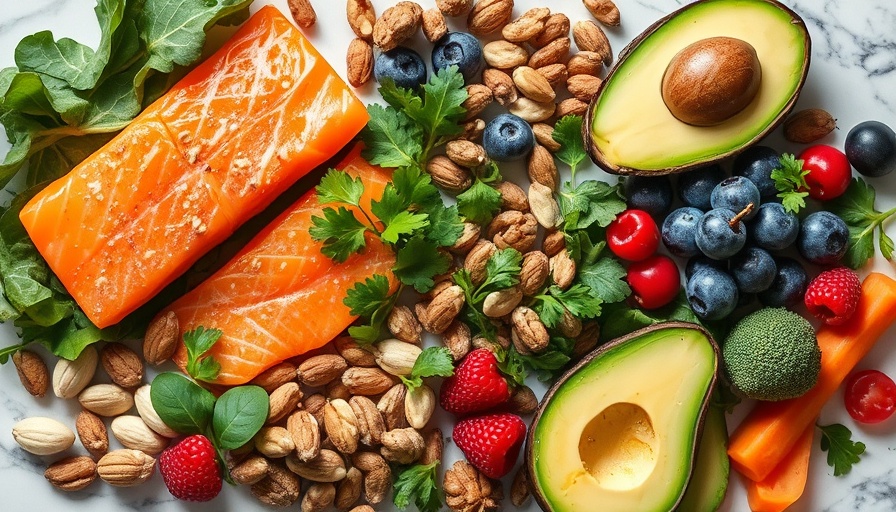
The Hidden Dangers: Foods That Harm Your Brain Health
As we strive for healthy lifestyles, the choices we make on our plates can significantly impact our cognitive well-being. Recent studies reveal that certain foods not only contribute to physical health issues but also pose serious risks to brain health. In an age where mental clarity and cognitive agility are more valuable than ever, understanding the link between diet and brain function is crucial.
Demystifying Ultra-Processed Foods: Convenient Yet Destructive
Ultra-processed foods, often deemed convenient for busy lives, are among the most detrimental to brain health. These products, laden with additives and preservatives, can inflame the brain and damage the intricate connections vital for cognitive function. A shocking statistic shows that individuals who consume high levels of these foods experience a 28% faster rate of cognitive decline. Instead, integrating whole foods—fruits, vegetables, and unprocessed lean meats—can foster better brain outcomes.
Mercury Risks in Fish: A Catch-22 for Health Enthusiasts
While fish is regularly championed as a brain food for its omega-3 fatty acids, not all fish are created equal. High-mercury fish, including shark and swordfish, pose neurotoxic risks due to accumulated mercury that crosses the blood-brain barrier. It’s imperative for consumers to shift their focus to smaller, low-mercury fish like salmon and sardines, which deliver the benefits of omega-3s without the toxic elements.
Understanding Advanced Glycation End Products (AGEs)
Charred meats may tantalize our taste buds, but cooking methods that produce Advanced Glycation End Products (AGEs) can wreak havoc on our neurobiology. AGEs contribute to oxidative stress, which is associated with the formation of amyloid plaques—a hallmark of Alzheimer's disease. Opting for gentler cooking methods like steaming and marinating before cooking can mitigate these harmful compounds.
Artificial Sweeteners: The Sweet Deceit
In the pursuit of caloric restraint, many turn to artificial sweeteners, unaware of their potential impacts on the gut microbiome and, consequently, overall brain health. Research suggests these sugar substitutes may foster inflammation that impairs cognitive function over time. Selecting natural sweeteners like honey or maple syrup and diminishing sugar preference gradually can yield healthier choices.
Connection Between Nutrition and Brain Function
Understanding these dietary dangers doesn't merely highlight what to eliminate but emphasizes the significance of building a nourishing diet. Incorporating balanced meals rich in nutrients plays a foundational role in bolstering brain function and overall well-being. This approach resonates with public health initiatives that encourage healthier food choices, especially within community health and wellness programs.
Action Steps for Optimal Health and Wellness
Making conscious dietary choices can be transformative. To fortify brain health, begin by evaluating your dietary habits today. Seek local health and wellness events that focus on nutrition, partake in community discussions about healthy living, or explore health and wellness products that emphasize natural and unprocessed ingredients. Consider consulting with health and wellness practitioners who can offer personalized insights tailored to your unique health journey.
 Add Element
Add Element  Add Row
Add Row 



Write A Comment